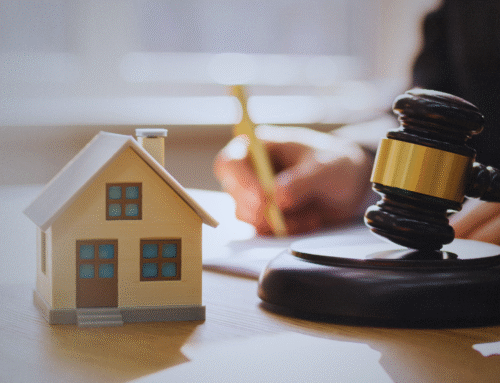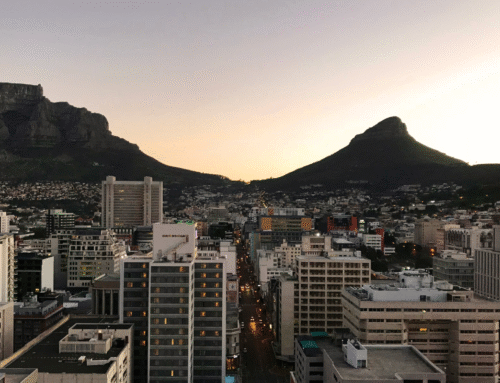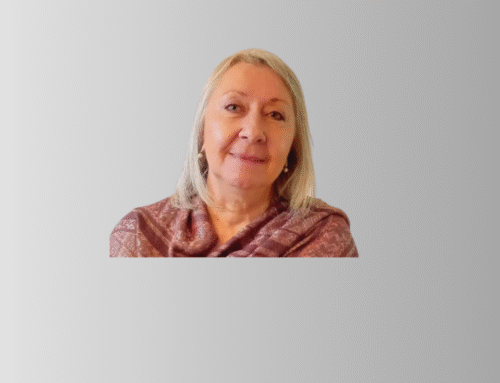Industry leader: Meet Saul du Toit
Every month, SAIV profiles some of our most established property valuers who have become leaders in the industry due to many years of experience. This month we are profiling Saul du Toit, a professional valuer and founder of Appraisal Corporation, to find out more about his 40 years’ experience valuing, the risks he sees facing the industry, and his advice to others looking to pursue a career in valuations.
What made you pursue a career in property valuations?
I completed two years of national service in mid-1982 and I was meant to start with civil engineering studies at Stellenbosch the following year. I visited a friend in Pretoria, through whom I met Mr Hans Kleynhans, a senior Department of Public Works valuer. He told me about his work and the fact that the 1982 Valuer’s Act just came out and what incredible opportunities exists in this field. As an ignorant boy from the Namib desert this was a world of which I was certainly not aware, and this incredible person even took me with him on field work to give me a feeling for what the work entails. I loved the fact that work is not office bound, that it contained components of so many other disciplines (legal, planning, engineering, etc.) and that it will take you to interesting places.
Due to this influence, I started working at the Transvaal Peri-Urban Board in Pretoria, in October 1982, as a Valuer in Training. I worked from February 1982 to February 1987 for Jordaan Jonker & Associates (Pty) Ltd (the late Jorrie Jordaan & Koos Jonker), as a Valuer in Training, and qualified as an Associated Valuer. This was during the period when they started the infamous Masterbond (what exciting times). Thereafter, I joined J.H. Boshoff Valuations in Centurion.
I always wanted to move back to the coast and the Fairest Cape had been calling for a long time. In August 1988 I moved to Cape Town and started my current business, working from the flat in Sea Point which I rented. From the outset I was blessed in this endeavour of building up Appraisal Corporation, which now has beautiful offices in an 1860 cottage (“Woodford Cottage – from where the 1895 Jameson raid was planned). Every day I walk into this office and speak to my wonderful staff, and I am inspired from anew.
Who do you think has had the biggest influence on your career today, and why?
It is difficult to think of a single person, as there are some many incredible valuers I have met, and who all in their way have had an influence. A special mention of valuers Mr Hans Kleynhans, Chris Robertse, Jorrie Jordaan, Dieter Aust, John Boshoff, Gert Wilkinson and Tim Moulder. They all had an exceptional passion for valuations, together with extraordinary logic, which puts a certain magic to what we do.
Other persons are in the market place with which we engage, where one gets exposed to out-of-the-box thinking and the incredible opportunities out there. A special mention is Sakkie Eloff, a paralysed foster child, who developed one of the largest industrial complexes in Rosslyn through sheer will – a beautiful human being. A profound influence is the privilege of working as an expert and the thinking of legal counsel which one gets exposed to through this avenue. Here I especially think of senior counsels Gerrit Grobler, Fanie Grobler and Rudolph Hiemstra.
It is not only a ‘who’, but also a ‘what’ that influenced my career. When Gert Wilkinson asked me in 1990 to take over the valuation night course at the Cape Technikon (now Cape Peninsula University of Technology), I was hesitant but did take on this task until 1996, lecturing Valuations II and III. This allowed a revisit to what I studied and inadvertently resulted in much more self-study to enable informed responses to the many pointing questions the students asked, some of which were much wiser and older than me. Similarly, lecturing at Stellenbosch University, UCT and for the SAPOA PDP, added to this learning curve. I also served on the SAIV branch and national executives from the middle 1990’s for around a decade, which gave treasured insight into our profession.
The strangest property you have ever been asked to value?
A house in Scarborough which only comprised of a large indoor swimming pool, open plan with a bedroom and kitchen, and outdoor bathroom. The pet was a large potbelly pig.
Also, the SA consulate in The Hague, which used to be the Dutch East Indian Company head office, and the planned new US embassy site in Djibouti on the Gulf of Aden, an Arabic Francophone country where market information did not exist.
What do you think is one of the worst, but perhaps most common, mistakes a property valuer can make?
Not speaking to buyers and sellers when doing market research, and the making of assumptions, which could have been verified.
Complete this sentence: Every property valuer needs…
… to continuously be in touch with the market in which she/he operates and continue with regular self-study, to keep up with the market, the legislative and institutional environment. Through good engagement with market participants, we also promote our profession.
Looking back on your career, what has been the biggest change you have noticed in property valuations in South Africa?
In the early 1980’s when I started in valuations, most valuers were employed by banks and the different tiers of government. Valuers in the private sector only formed a small part of the valuation profession and were generally regarded as the “better” valuers, as they largely conducted expert work. When municipal valuations and bank valuations were privatised in the 1990s, it meant all of a sudden the bulk of the profession became valuers in the private sector. This regrettably had the consequence that the quality of private valuations was initially sub-standard, albeit this is slowly on the mend. This also meant much more fish in the fish bowl, more competition and fee cutting and also short-cuts in valuations. This tainted our profession and will still take many years to remedy. The most notable change was the phasing out of the compulsory practical valuations as part of registration with the council. We had to do three practical reports of different types of properties and this testing regime, to see if you are really equipped to perform valuations, is in the present day sorely lacking and so often evident in valuations.
Technology obviously had a huge influence. It is so much easier to source and capture information. Conversely, this benefit is often a poisoned chalice, as so often valuations are now padded with multiple sales so sourced, without any real research. Not having to take a photograph and have it developed is so nice, and to make a location map of transactions is so much easier.
What risks do you see facing the property valuation industry today?
The increasing reporting requirement of bank valuations at sub-standard fees and within unreasonable timeframes. So many valuers are depended on this work and therefore the need to appease the master’s voice, resulting in a ticking of the right boxes, but removing the enjoyment and sustainability, which is so important.
Other risks include:
– The fact that our council has not adjusted our guideline fees since 2010, contrary to the other professions in the built environment.
– Political meddling through regulations in how valuers should do their work and the aim of the Valuer-General to capture all government valuations.
– An increasing reliance on data processing and not in-depth market research.
– Artificial intelligence and computer generated “valuations” which will with time make many valuation posts redundant.
Any advice for young people looking to pursue a career in valuations?
It is a most rewarding career to pursue, but also one that comes with risks as pointed out above. The only remedy is to become more qualified, do better market research and become an expert valuer. There will always be ample work for good valuers. Currently these are the only valuers who have ample work, while so many other valuers regrettable are in a survival mode.
Are there any specialised properties which you believe would be worthwhile for any valuer to develop specific skills in valuing?
There is certainly a need for more qualified agricultural valuers, which is probably one of the more complex but rewarding property types to value. Also, specialised trading properties (such as filling stations, hotels, airports, etc.)




